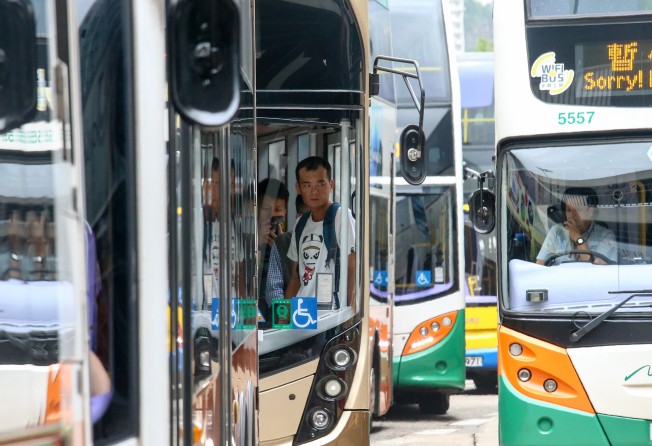Letters to the Editor, October 1, 2017

Better pay can attract young to drive buses
The fatal bus accident at Sham Shui Po on September 22 has led to renewed discussions on the working conditions of drivers employed by franchised bus companies in Hong Kong.
Unions have called for their maximum hours to be cut from 14 to 12 hours per shift.
We need to ask why these employees put in such long hours. It is not that difficult to work out when you look at their average monthly salaries – HK$13,000 to HK$15,000. This is not much to live on and, to increase it to around HK$19,000, they have to do overtime.
The Transport Department has guidelines saying drivers should do no more than 14 hours a day. There needs to be legislation stipulating standard hours for bus drivers.
The bus firms say there is a labour shortage. If they want to encourage young people to join up, they must start offering higher salaries.
John Wu Chun-yan, Tseung Kwan O
Refuse on our beaches puts off tourists
I appreciate the efforts made by people last weekend to clear refuse from Rocky Bay Beach and nearby shorelines at Shek O (“More than 100 volunteers clean beach in Shek O for Hong Kong pollution awareness campaign”, September 23). They were able to clear 900kg of waste in 11/2 hours.
As a Hong Kong citizen, it is encouraging to see that there are still people who care about the environment in this international finance centre. More of these clean-up campaigns should be launched on our beaches. Much waste ends up in the sea, pollutes our marine environment and damages our ecosystems. In particular, plastic can cause immense damage to wildlife, such as sea birds.
Further, cleaner beaches lead to a better image of Hong Kong. Travellers who go to coastal areas covered in refuse may tell friends and family members and deter them from coming here for a holiday.
That would be such a pity, because much of the coastline of Hong Kong is really beautiful and could attract tourists.
Also, when a lot of waste piles up it attracts flies, rats and cockroaches, and therefore adversely affects the living environment of nearby residents.
This latest beach clean-up illustrated the need for all citizens to take action now and protect our natural landscape. More Hongkongers should volunteer for such days at the beach to remove refuse.
Janice Chum, Yau Yat Chuen
Elderly waste collectors need more support
The latest problem with a build-up of waste paper, because of an import ban imposed by the mainland authorities, highlighted the plight of those people, many of them elderly, who collect this kind of refuse on our streets every day.
These workers can be seen all over the city, whatever the weather, putting newspapers and cardboard on their trolleys to take to recycling operators for meagre sums. They earn so little, but need it just to get by.
They have been hardest hit by the problems with the mainland authorities and a build-up in waste paper has led to a drop in the prices that recycling firms would pay them.
This must have made their difficult lives even harder. These people face an uncertain future.
As we become more environmentally friendly, we try to save paper and use less of it, and also put cardboard in recycling bins. These elderly citizens will gradually find there is less cardboard to collect and even their tiny incomes will dwindle.
There is surely more that the government can do to help these old folk so they do not have to do this job. Pushing a heavy trolley, especially during the summer months, is not fair on an elderly citizen. As a society we must do more for our elderly poo.
Miki Chung, Tseung Kwan O
Competition is stiff for city’s ‘dragon babies’
It is getting more difficult for Hong Kong parents to get their children into a top primary or secondary school.
Some parents see it as their priority to get a place at one of these schools and join long queues to apply. This is especially important this year, because of the large number of “dragon babies”, that is, born in the year of the dragon (seen as the most auspicious), who are ready to go to school.
Given that competition is stiff, a lot of pressure is put on children and this is not good for them. Parents should ask their children what they want and choose a school that is the most suitable, given the abilities of their sons and daughters.
Lulu Ng Cheuk-yan, Sha Tin
Lighten pupils’ load by having more lockers
I agree with those who say that something must be done to reduce the weight of school bags carried by young children (“Most Hong Kong primary pupils carry overweight school bags”, September 25).
Because they have so many subjects to study during the school day, pupils have to carry several textbooks and this puts a lot of strain on their backs. And they also have to carry their lunchboxes and water bottles.
This practice is unhealthy and could lead to some of them developing back problems.
They should only have to carry a minimum number of books and be given bags made of very lightweight material.
Schools can help by providing more storage facilities, such as lockers, on campus so that all of students can use them. And there needs to be a major shift in the education system – to the use of e-books where possible.
Rachel Leung Hiu-lam, Kwai Chung